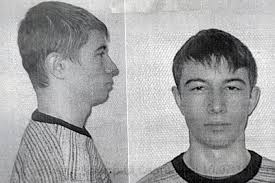The assassination in Dagestan this week of Dmitry Sokolov — the husband of Naida Asiyalova, who blew herself up on a bus in Volgograd last month — has been largely presented in Russia’s media as a success for the security authorities.
Sokolov, whom the Russian media has described as a “Wahhabist” and the ringleader of a Makhachkala terror gang, had been named by the security services as the person who masterminded the Volgograd suicide bombing, which killed six and injured 55.
The authorities said that Sokolov was killed alongside four other suspected militants during a raid by Russian security services on a private house in a suburb of Makhachkala during the night of November 15-16. After the raid, the authorities said that Sokolov’s presence in the house had been attested by neighbors who recognized him, and that shortly before his death, Sokolov had confessed in a telephone call to his mother to masterminding the Volograd bombing.
Suspect “Admitted Responsibility In Phone Call With His Mom”
The authorities said that, during negotiations between the Russian anti-terrorist special forces and the men in the besieged house, Sokolov was allowed to speak on the telephone to his mother.
It was during the telephone conversation that Sokolov declared responsibility for the Volgograd suicide bombing, according to the National Antiterrorism Committee, who told reporters in the afternoon of November 16 that Sokolov had admitted to his mother that he had personally manufactured the explosive device used by Asiyalova.
While most media reports simply repeated the NAC’s statement, Komsomolskaya Pravda went further, with a a fictionalized “reconstruction” of what its reporters thought Sokolov might have said to his mother, who was allowed to telephone her son during the raid, to ask him to surrender.
Reports Of A Woman And Child In The House
Reports that there had been a woman and a child in the house with the five men appear to be accurate. Interfax cites a source from Russia’s National Antiterrorist Committee (NAC) as saying that, in addition to Sokolov and four others, there was a woman and a child in the house. Following hours of negotiations with the five men, the authorities brought Sokolov’s mother to speak with her son on the telephone. After that call, the five men allowed the woman and child to be brought out. The woman’s husband was one of those who later died in the siege, according to a spokeswoman for the NGO Pravozashchita.
Police “Alerted By Neighbors” To Sokolov’s Presence
In a statement on Tuesday, local authorities in Makhachkala said that the police had been alerted to Sokolov’s presence in the house after neighbors recognized him as the man wanted in connection with the Volgograd bombing, and informed police. Security services organized wiretaps of cellphones used at the house, and ascertained that one of the residents was Sokolov, according to the Makhachkala press service.
“Why Wasn’t Sokolov Taken Alive?”
The reports of Sokolov’s “liquidation” have been presented as a success for the Russian anti-terrorist authorities, even though Sokolov was not taken alive.
Komsomolskaya Pravda quotes an former FSB special forces officer, named only as “Alexei”, as explaining that it was likely the Russian commandos did not have any choice but to “eliminate” Sokolov:
“Before any special operation, soldiers are given a clear military objective: to destroy or take alive, if possible… “Take alive” is a task that always means that men have to risk their lives for the information that could lead to an arrest. It is very likely that such a task was set in the case of Sokolov. This is evidenced by the duration of the operation, and by the long negotiations with the assistance of his mother. But the attempt was not successful for several reasons, the first of which was the failure to get the militants to surrender. Probably, after the failure of negotiations, sleeping gas grenades were let off and Sokolov decided to break cover, leaving no other option for the commandos than to eliminate him.
Liquidation A “Serious Success” For Special Forces
Russia Today’s Russian language edition went further than Komsomolskaya Pravda, calling the operation against Sokolov a “serious success” for Russian counterterrorism. RT recruits two experts to back up its line: Sergei Goncharov, an MP in the Moscow State Duma and president of the Alpha Group, an international antiterror veterans association; and a retired FSB colonel, Aleksei Filatov.
RT quotes Goncharov as saying:
“I must admit that it’s a pretty serious success of our special services, because in a short period of time our investigators were able to establish and locate this bandit, and his hideout… (However) we get rid of one link (in the chain) and there are more. Right now, we need to carry out more agent- operational work to prevent the formation of such groups, which are now operating in Dagestan.”
Filatov said the operation to find and eliminate Sokolov was run-of-the-mill.
“Bin Laden was hunted for 10 years by all the intelligence agencies of the world. So far, unfortunately, our intelligence agencies haven’t been able to find Doku Umarov, although every effort has been made to catch and neutralize him. In this situation, I think it was a normal time period. (The authorities were) given the task, and the task was completed.”

